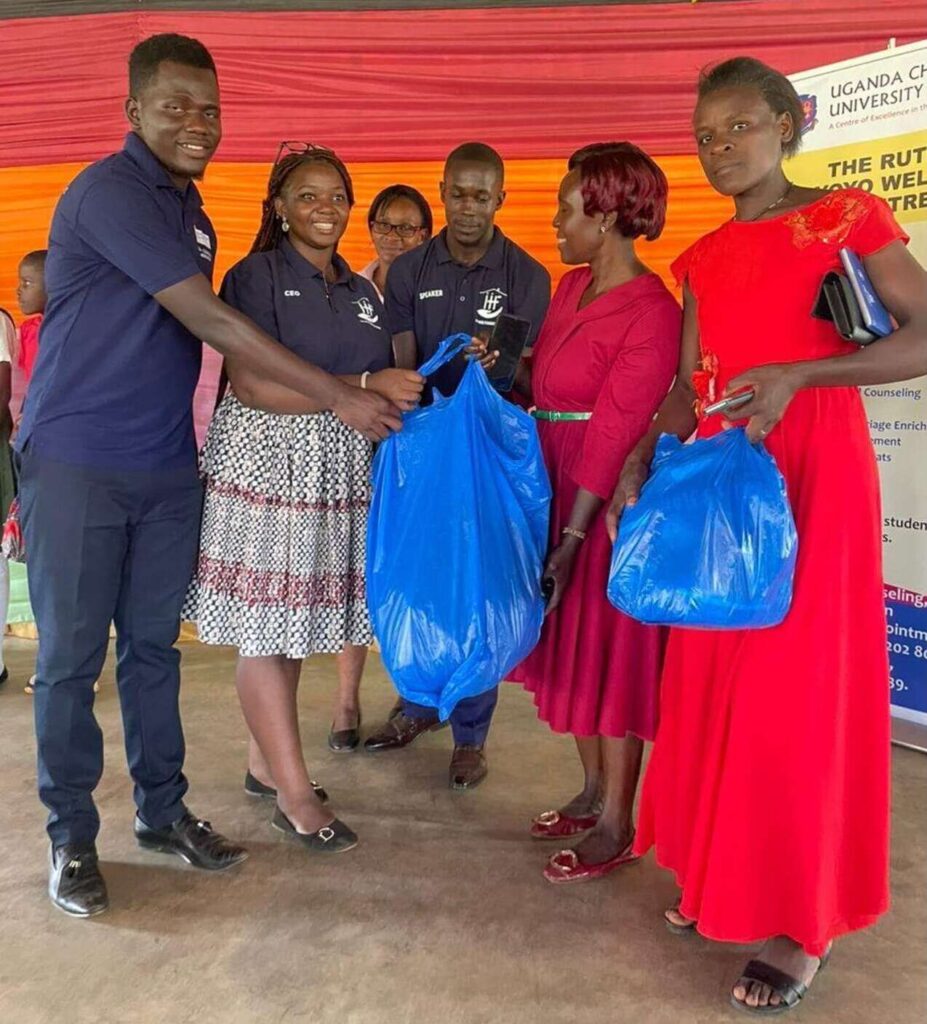By: Zipporah Faith
UNICEF has been actively involved in addressing menstrual hygiene management issues and lobbying for girls’ worldwide access to sanitary towels. They realize that girls’ education and overall well-being can suffer as a result of a lack of access to menstrual hygiene supplies. Melinda Gates has brought attention to the widespread struggle of girls to obtain sanitary towels, underlining the importance of collective action and resources to address this important issue.
In an effort to help girls stay in school, the Uganda Christian University (UCU) Ruth Nkoyoyo Wellness Center, Hope of House Foundation Uganda, and UCU Mental Health Club staged a “Pad a Girl” program in partnership with the UCU Para Counselors Association. Counselors planned a visit to remote locations on June 16th, one of which was Buikwe District, which is one of the areas most affected by females who have little awareness about menstruation and access to pads. The visits focused on three schools, two of which were elementary schools.
Irene Nabwire Ojambo, the head of the para counselors association, says that as UCU, they strive to see that our students are able to be people who can live in any situation. “We found out that some of the children in the villages have difficulty with the issues of the monthly period,” says Irene. “Some of them don’t have what to use, and they don’t even know what to do, and that is why we are here.”
The team from UCU taught the girls about menstruation hygiene, and how to use and dispose of used sanitary towels. The girls were taken through a vivid description of how they could use a pad, and it was later seen that many actually had no idea how it should be used.
Gertrude Nanyonga, a senior four student at Buikwe High School, says she never knew that a pad could also be disposed off by burning. “I only knew that we had to dispose of them in the rubbish pit or in the pit latrine, but now I will be able to burn them myself and make sure no one can see or find them.” Says Gertrude. “I would like to greatly thank the team from UCU for coming here today to teach us about these things. I have also been greatly motivated by them to further my studies.”
The girls were also taught about the various types of pads used and how to make the reusable pads. The disposable pads tend to be costly for them, especially those in school. A girl is required to come with three packets of pads for the whole term, and you might find this is not even enough for them in cases where one might have a heavy flow.
Ameria Kagoya, a senior 2 student at Buikwe High School, says that it is hard for us to survive on just three packets because sometimes you will find yourself helping another girl. “The school tells us to bring only three packets for the whole term, and yet the term has four months. I have just realized that those packets can’t be enough for every girl because we all have different cycles. Some last seven days, and you find that two packets are over in just a month, and others have heavy flows, making them change like three times a day,” says Ameria.
The reusable pads help in reducing costs, and in this case, the girls can never lack pads; they won’t have to beg all the time from their friends, hence making both parties lack enough sanitary towels for the term. The girls were told all the materials they could use to make the reusable pads and how to take care of them, which is by soaking them for two hours in detergent.
At the end of the day, the team went out to different families in the community, donating items like soap, toilet paper, shoes, and clothes. Counseling was also given to individuals on different topics that they found crucial to the community and students. Despite the campaign concentrating on girls, boys and men were approached to counsel them on proper use of drugs and hygiene, among others. The individuals extended their gratitude, showing signs of improvement in the future.


